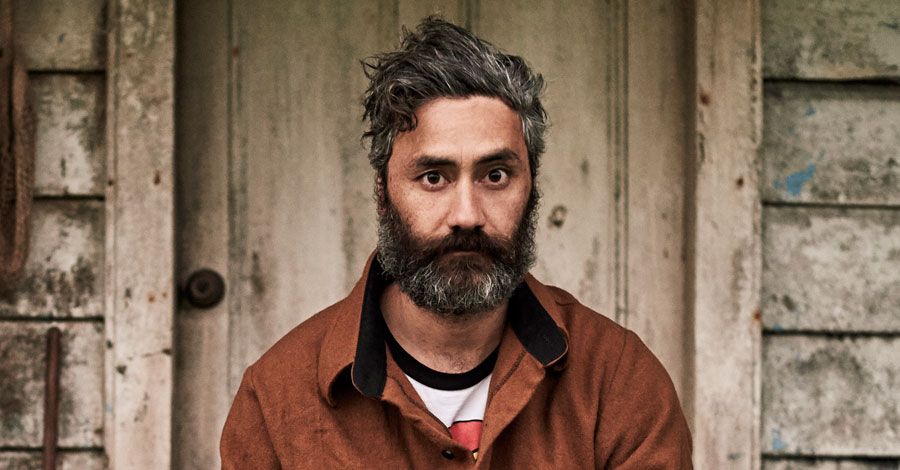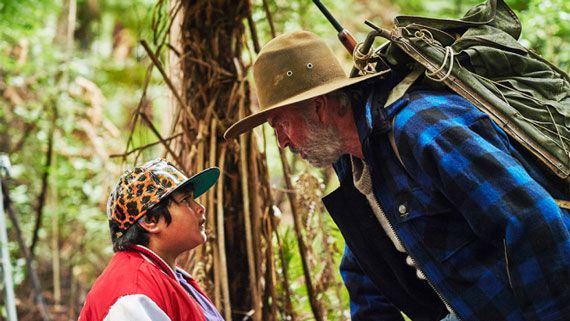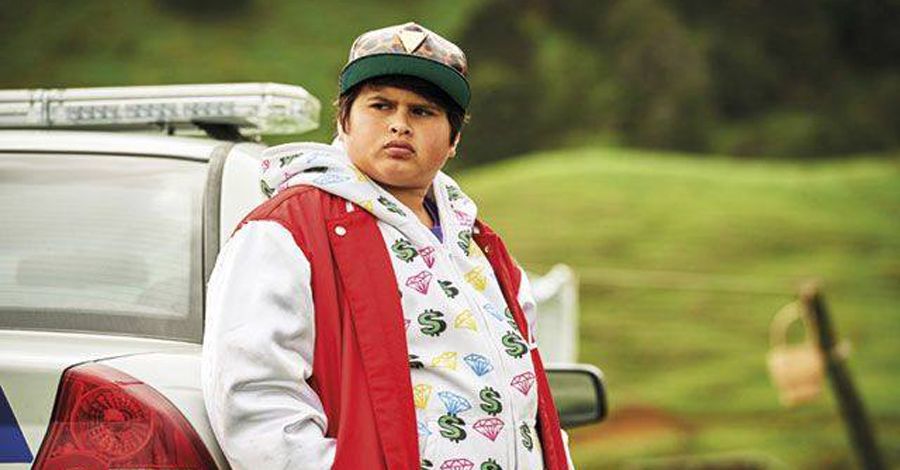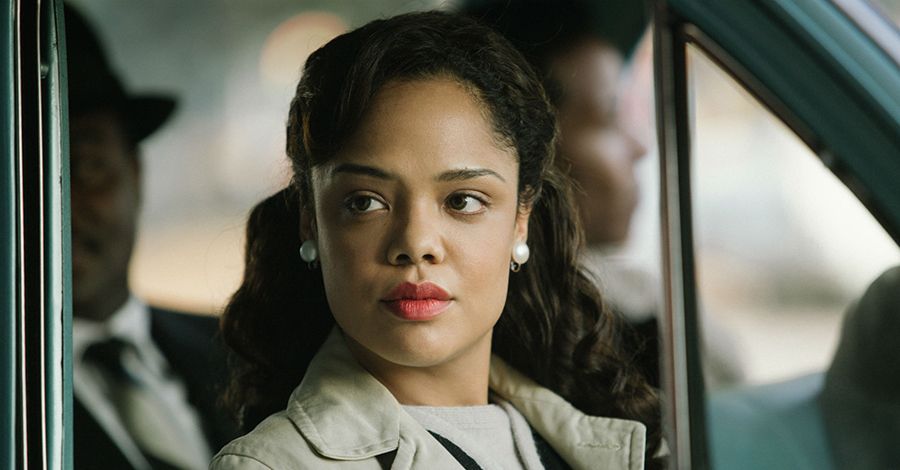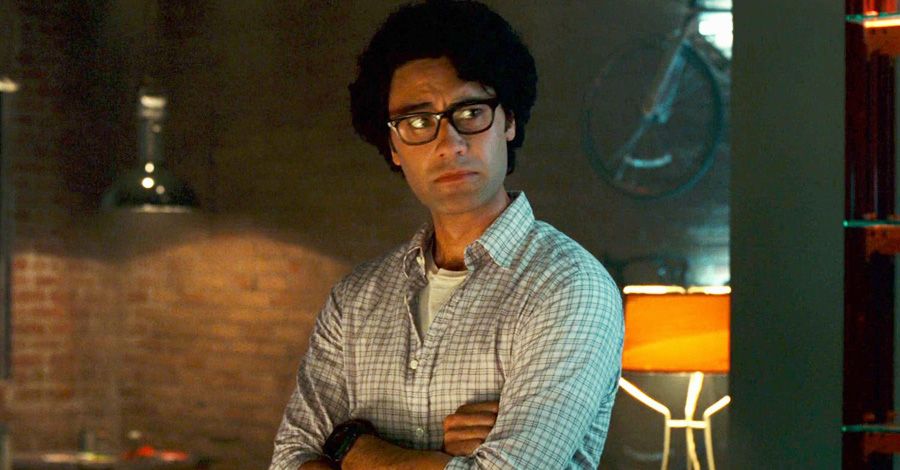Comic book fans may have scratched their heads last fall when Marvel tapped an indie comedy filmmaker from New Zealand to direct "Thor: Ragnarok," but those who have followed Taika Waititi's work cheered the studio's foresight.
For one thing, Thor's Marvel Cinematic Universe stories have been at their best when undercut with an edge of humor, as when the hulking god gently hung his mighty hammer on the coat hook inside Jane Foster's humble human abode. So bringing in a master of this brand of silly, yet sharply humane, humor seems a perfect fit for the "Thor" franchise's third installment.
This Maori filmmaker first earned international notice in 2005, when his short film "Two Cars, One Night" earned an Academy Award nomination. From there, the ambitious writer/director/actor made a string of critically acclaimed features, including the quirky rom-com "Eagle vs Shark," the bittersweet coming-of-age comedy "Boy" and the sides-splitting vampire mockumentary "What We Do in the Shadows." That streak continued in January at Sundance, where Waititi's "Hunt For the Wilderpeople" was proclaimed one of the best of the prestigious fest. When we caught up with the charming buddy comedy at the Tribeca Film Festival, we agreed: "Hunt For the Wilderpeople" is stellar.
Adapted from Barry Crump's novel "Wild Pork and Watercress," "Hunt For the Wilderpeople" stars child actor Julian Dennison as "bad egg" foster kid Ricky Baker, whose life is forever changed after he's taken in by a kindhearted farmer (Rima Te Wiata) and her gruff bushman husband Hec ("Jurassic Park's" Sam Neill). But when a tragedy chases Ricky and Hec deep into the wild bush of New Zealand, the two must not only tackle the tough terrains and dangerous beasts, but also evade the national manhunt led by a tireless -- and not a little bit unhinged -- social welfare worker (Rachel House.)
Waititi took a break from the production of "Thor: Ragnarok" in Australia to speak with Spinoff about the Marvel Studios sequel, "Hunt For the Wilderpeople," the value of diverse representation, and his first brush with superhero movies, the disastrous "Green Lantern."
SPINOFF: Congratulations on joining the Academy of Motion Picture Arts and Sciences!
Taika Waititi: Thanks! Yeah, it's pretty cool.
Tell me how you found out you'd been made a member.
Through Twitter. Someone said congratulations on Twitter, and I was like, "For what?" And then I checked my email. I like to go on Twitter before I check my email for proper news and such.
So you had been sen an official notification email.
Yeah, it was just for some random reason I'd gone on Twitter to read stuff, and some random person said congratulations. Then I checked my email, and it was like "Yeah, you're part of this Academy now." And I said, "Wow, that's cool." I don't know what that means, but it's cool. And also my close friend Cliff Curtis ("Fear the Walking Dead") was also invited. We were the only two Maori people invited to join the Academy this year. I don't know how many Maoris there are in the Academy, full-stop. Probably like four.
Did you get to go to the Oscars when you were nominated in 2005 [for the short film "Two Cars, One Night"]?
Yeah, I went. And they've kept on saying to me every year since 2005, "You should really just join the Academy, because you can, because you were nominated." And I just never got 'round to it. I'm too lazy. Then finally last year my manager said, "I'm just going to make you do it. I'm just going to make it happen."
Was it just too much paperwork? How come you didn't get around to it?
Anything that requires filling out a form or sending an email, it takes a lot for me to follow through with that and make a decision to open up the app and start typing, even when sending the email is worthwhile and I'm going to get something out of it.
I get that. So, "Hunt For the Wilderpeople," it's had a long journey from page to screen. Can you tell me how it's evolved since you were first hired to adapt Barry Crumb's novel back in 2005?
Sure. It'd had even been in the works for maybe five years before that. The producers were trying to get it made for quite a while. I came on and wrote a couple of drafts. This is before I'd made any features. I'd made -- I think -- one short film. And I think creatively we didn't see the picture in quite the same way, so I went off and made my other films. And after "What We Do in the Shadows," I checked in with them to see how it was going, because it'd been 10 years or whatever. I was like, "Hey, listen how's it going with that project? What're you doing with it?" And they'd kind put it right in the back seat, they'd put it right in the trunk of the car in terms of developing it further.
And I said, "Well, look, I'll take it off your hands." And yeah, so I did. I just wanted to make it really fast, and I wanted to do something good. I still really liked the book and I really liked the idea of a two-hander between an old guy and a kid in the Bush, with a big manhunt surrounding them. So, I took the rights and I rewrote the whole script with a comic slant, and made it more edged with adventure. I introduced the idea of social welfare worker, and the big army car chase at the end. All that stuff. And yeah, it was a really fast process after that.
And the cast is incredible! Julian Dennison is new to Americans, but everybody loves Sam Neill.
Yeah. Everybody loves Sam Neill. And I didn't realize [how much]. Like, I personally love Sam Neill, but I didn't realize how loved he was abroad as well. When we were at Sundance premiering at the beginning of the year, we were all walking down the street and he just got swamped with people wanting photos and autographs. It was really amazing. Even he was surprised. He was like, "What do these people want? What the hell is going on?"
The Ricky Baker birthday song is mad catchy and delightful. How did it come about?
We actually made that up on set. We'd been singing the actual "Happy Birthday" song up until then. We'd done like 10 takes of it, and then a producer who'd been researching it found that it was still under copyright. And we hadn't bought the rights to "Happy Birthday," so we had to come up with something else.
And so we sat around for about half an hour making up some lyrics, and that's how the "Ricky Baker Song" came about. Myself, Bella [Rima Te Wiata], Hec [Neill) and Ricky [Dennison] all hanging out in the kitchen, practicing and making up the words. There's a lot of B-roll footage where we're just trying to make up rhymes for "rejected," and "Hector" -- "trifecta!" Maybe we'll put those on the Blu-ray.
With references to "Crocodile Dundee," "Terminator," "Lord of the Rings," "Rambo: First Blood" and "Scarface," "Hunt For the Wilderpeople" is sly about the power of movies on peoples lives. Tell me about that.
A lot of "Hunt For the Wilderpeople" is inspired by the movies I grew up with, like big adventure films from the '80s, Australasian cinema. Even the music, there's things from "Miami Vice" or the soundtrack to "Gallipoli." And there's a sort of style that came around back then which was little zoom shots and crushed spaces and such. So I used a lot of the filmic techniques from then, and also it effects the shape itself of these outlandish characters.
Like Paula the social worker [Rachel House] is sort of a villain, but not really. She's just doing her job, and really into it. She's a relentless hunter. And yeah, down to the big car chase with the helicopters and stuff, the big "Thelma and Louise" moment. There's influences all throughout the film from those classic buddy films, like "Thelma and Louise," "48 Hours," "Paper Moon," and sort of road-trip film like "Planes, Trains and Automobiles." Pitting two opposing characters against each other, and then forcing them to work together. It's a classic style. I guess what's different about this one is New Zealand: you've got very weird New Zealand characters in a beautiful New Zealand landscape.
And even Paula, she's very influenced by movies. She takes on quotes from movies. I basically told Rachel, who plays Paula, to base her character on Tommy Lee Jones from "The Fugitive." I just said, "You just take him: He won't stop. He doesn’t' care if Kimble is innocent or not. He just wants to catch him." [Laughs.] There's on scene that's pretty cool that we didn't put in where she has a message for Ricky Baker that she's sending out, and she does Daniel Day-Lewis's speech from "Last of the Mohicans," which he delivers to Madeleine Stowe. "You stay alive," and he'll find her. "No matter what occurs, just stay alive." And I had Paula doing that for Ricky. [Chuckles.]
What do you feel inclusive casting and broader representation brings to cinema?
I think it's more interesting. This film, the premise is not new at all. The idea of these two people, it's like "Midnight Run." Two people on the run, people trying to catch them. That's not new, but the setting is new, the background of this kid is new, the backdrop to this very universal type of story is new. And in New Zealand, Maori culture is one of those things that sets apart from Australia, or from the U.K., or from any other place. The indigenous culture of any place is its fingerprint. I think, why not embrace that? Why not use that? And when I say it adds color, I don't mean "color" as in racially, it just adds flavor and color to a story that we've seen before. So why not use it? It's there and it's beautiful. And there's so many beautiful cultures everywhere. I think you should use them.
To tie that into the movie you're working on now, tell me how Tessa Thompson came into the casting conversation for Valkyrie on "Thor: Ragnarok."
Right from the start we wanted to diversify the cast, and it's hard when you're working with Vikings. [Laughs.] You want to be more inclusive and provide a broader representation. And at that point, you have to look at the source material as a very loose inspiration. And then take it from there and go with your gut. Say, "You know what? None of that stuff matters. Just because the character was blonde and white in the comic book. That doesn't matter. That's not what [that character] is about."
People forget that. Die-hard fans will say, "That's not really authentic to the comics," but as soon as they watch the movie, and they're involved in the story, and actually what's happening, everybody forgets. The fact that we even have to keep having this conversation is ridiculous, because we keep forgetting. Unless it's the topic of the film, it just shouldn't even be -- what do we even care?
I think the story is king, and you want the best person for the job. And Tessa tested against -- we cast a very broad net, and Tess was the best person.
You have a really remarkable cast in "Thor: Ragnarok." Not just Tessa, but also Karl Urban, Cate Blanchett and Jeff Goldblum are new to the MCU ensemble. How do you pitch a superhero movie to these people?
I think a lot of them having seen how good the other Marvel films are, they want to be part of that. Superhero movies are seen like really ridiculous, cartoony things anymore. There's a time and a point where you really wouldn't want to touch superhero movies, especially in the mid to late '90s and definitely in the '80s. There were a lot of very ridiculous and possibly career-ending move to make if you were an actor. But I think that the reputation of Marvel is very high. The things that they do is very high quality and they tell good stories. That's the main thing. That's why I got involved with them as well. At the heart of it they want to tell good stories, and that's what I'm about as well. I'm not about explosions and the like. I like that stuff. I think it's fun to do, but it's not why I became a filmmaker. The thing I love is character and story.
Past directors who've worked with Marvel like Joss Whedon ("The Avengers") and Shane Black ("Iron Man 3") have described Marvel as "the machine" for how it supports filmmakers in achieving a grand spectacle. How has your experience with "the machine" been so far in making "Thor: Ragnarok"?
I'd say that's so, definitely. I think it is a machine meant to help filmmakers create spectacle, because I'm not about spectacle. Spectacle is the thing that is the backdrop to a good story, and cool characters, and funny scenes and good exchanges between people. I sort of feel like it's -- hm. How do I put this? I've never really thought about it in terms of a sound bite. [Laughs.] I see it more as a storytelling machine, who have a really spectacular typewriter. [Laughs.] They're telling normal stories. Like "Captain America: Civil War," take away all the stunts, and explosions and stuff -- there's actually a really interesting debate going on in there, and some interesting character stuff going on. Some interesting stakes and in a way it's a political thriller. So yeah. For me, it's not about giving filmmakers a chance to blow things up. It's about being able to tell really good stories with a really spectacular backdrop.
Of course, "Thor 3" isn't your first brush with superhero movies. Tell me about your experience co-starring opposite Ryan Reynolds on "Green Lantern."
I really loved that experience. It was my first time on a really big film set, and man, it was such an eye-opener. I'd come from a crew of 30 people and gone on to a film where the crew is probably 300. And just making a film like that was really new to me. I learned a lot just watching. The acting aside, I knew what I was there for. I treated that experience as a learning experience, educating myself on how those big studio films come together. I was watching Martin [Campbell, the director], and watching the way the set was run. Not learning my lines probably, but learning other things. But, yeah, I enjoyed it a lot.
So in a sense, did your experience on "Green Lantern" informed your directing on "Thor: Ragnarok"?
Not really. I'm a very different director than Martin. He really comes from that world of very experienced, and he's a very fun director. But the way I do it is sort of more playful. I tend to find things (on set) a lot more. Yeah, I probably experiment a lot more than a lot of established Hollywood directors, because I don't know how to do it yet. [Laughs.] I'm still learning. So I bring some bad habits. So I hadn't really taken much from that experience except from watching and getting a taste for what's involved. Because studio films, they often move much slower and there's definitely a much bigger beast to try to control.
"The Hunt For the Wilderpeople" is now in theaters. "Thor: Ragnarok" opens Nov. 3, 2017.

